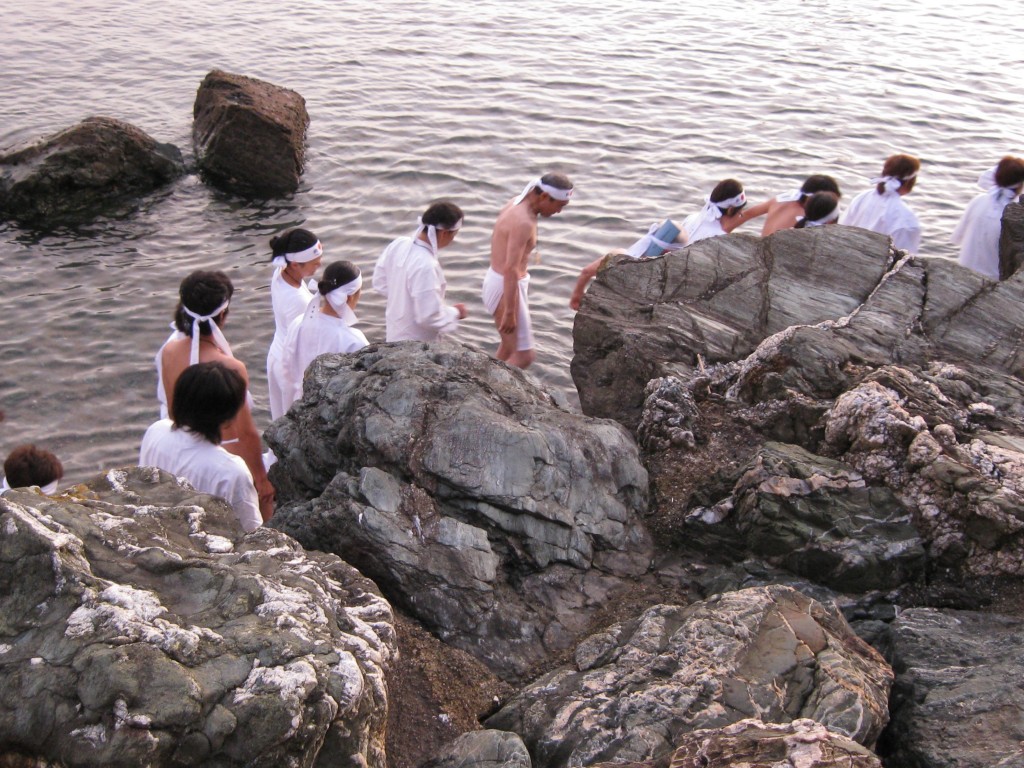
Once a year at the summer solstice participants prepare to enter the sea for sunrise misogi at the Ise Meoto Rocks
The Shinto tradition of misogi (cold water immersion) is one shared with many cultures around the world. Nowhere is this more evident than in India, where Hindus believe the river Ganges is sacred and that bathing in the river will wash away sins and facilitate liberation from the cycle of suffering.
One form of asceticism in Japan is to stand under a waterfall, deadly cold in winter, while reciting prayer. Another is to immerse oneself in the sea or a river. Shinto has a set form for how to do this, which is part of the training for priests though only a small percentage practise it on a regular basis and even fewer ordinary followers. For most a cold shower is sufficient. At my gym I regularly find that after bathing, the person before me has finished off his ablutions with a burst of cold water. Health studies have shown that this has very real benefits, as described in the article below.
***************************************************
5 reasons why you should take cold showers
Katherine Martinko on treehugger.com
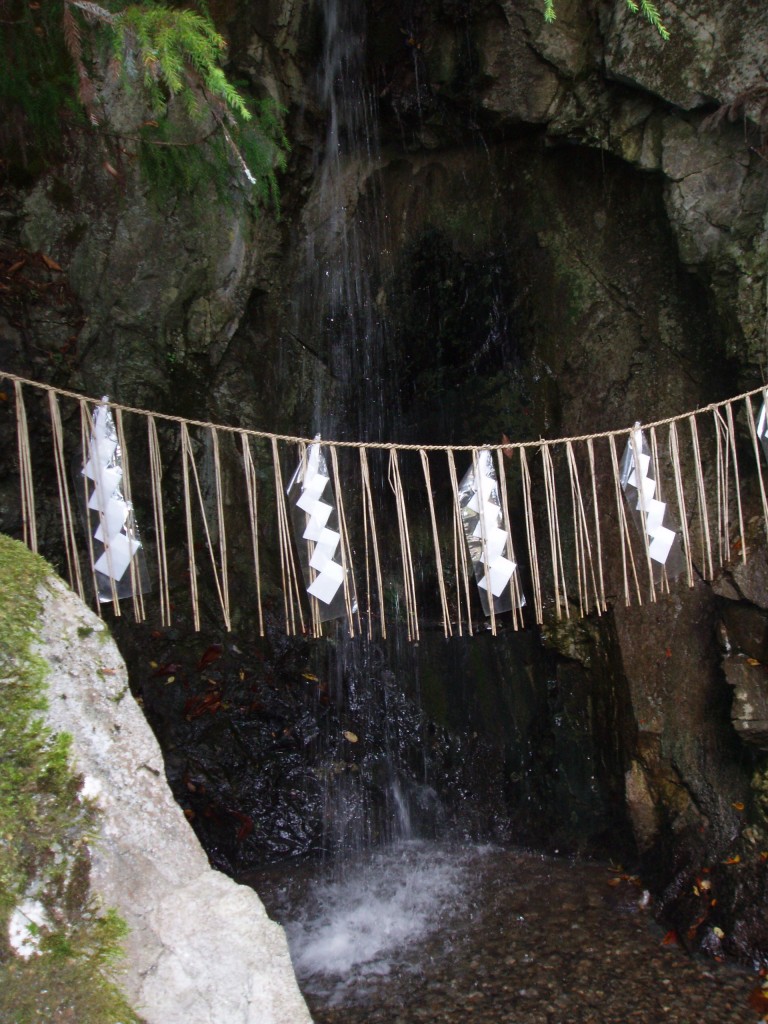
Places for cold water austerity are marked off as sacred
Have you ever taken a cold shower – a really cold shower? Then you’ll know that bracing sensation as the icy cold water comes pouring out of the showerhead onto your just-warm, now-frozen skin. You gasp, and perhaps scream, as you become number by the second. Although the shock dissipates, the pain never really goes away until you step out and grab the nearest towel. In the following moments, however, you suddenly realize it was totally worth it. By now you’re feeling the greatest adrenaline rush. Your skin is tingling, you’re wide awake, and you’re realizing, I just did it!
Cold showers have played an important role in many cultures for various reasons. From the Spartans, ancient Greeks, and Romans, to Native American tribes, Japanese Shinto practitioners, and the Scandinavians, cold water plunges have long been part of traditional rituals. They are used to build psychological strength, to cleanse the spirit, to improve health, and to make you feel awesome… once you’re out, of course.
Our comfort-obsessed modern culture has largely forgotten – or chooses to overlook – the benefits of cold water, but perhaps it needs to make a comeback, not least of all because it forces you to conserve water (you won’t want to linger so long) and reduce the heating bill. But there other reasons why taking a daily cold shower – or doing a ‘polar dip’ in a cold lake – is a very good idea.
1. It improves blood circulation.
A cold shower increases the rate of blood flow through the body, pumping more to your organs. This is beneficial to the cardiovascular system and can help with blood pressure, hardening of the arteries, and varicose veins. Increased blood flow to the brain helps it to function optimally and leaves you feeling more alert for a longer period of time.
2. Cold water is an anti-depressant.
The adrenaline rush and that wonderfully giddy sensation that you get post-plunge come from the tremendous amount of electrical impulses sent from the peripheral nerve endings to the brain, which has an anti-depressive effect.
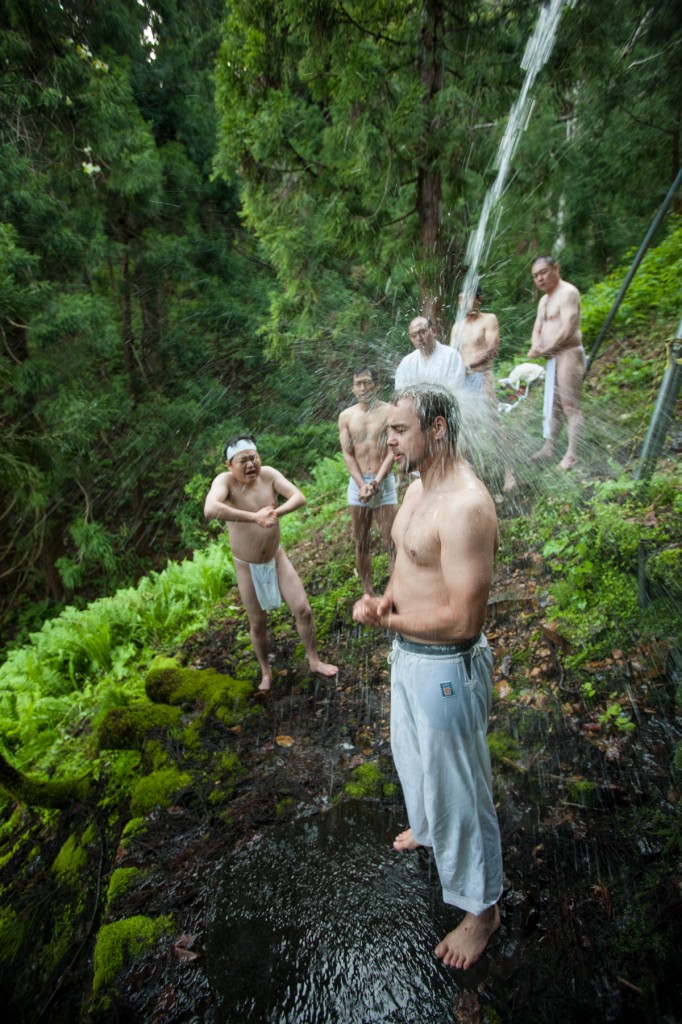
Christian Grubl of the Austrian shugendo association practises misogi
A 2008 study called “Adapted cold shower as a potential treatment for depression,” published in Medical Hypotheses, presents the interesting hypothesis that depression may be caused by “a lifestyle that lacks certain physiological stressors that have been experienced by primates through millions of years of evolution, such as brief changes in body temperature (e.g. cold swim), and lack of ‘thermal exercise’ may cause inadequate functioning of the brain.”
The evidence seems to support the hypothesis. Exposure to cold activates the sympathetic nervous system and increases the release of noradrenaline, a chemical that mitigates depression. Practical application showed cold hydrotherapy to relieve depressive symptoms effectively.
3. Cold water is good for your skin and hair.
There’s a reason why you often hear that you should rinse freshly washed hair with cold water in order to reduce frizz and improve shine. Hot water tends to dry out skin and hair, whereas cold water leaves it feeling firm, taut, and less wrinkly. For long-term toning, splash a mixture of cold water and fresh lemon juice onto your face for a refreshing rinse.
4. Cold water can improve athletic performance.
One recent study published in the American Journal of Physiology found that athletes who use cold water immersion after resistance training are able to complete more work during subsequent training sessions, “which could enhance long-term training adaptations.”
Another study in the Journal of Sports Science and Medicine found that cold water immersion improves recovery following exercise, and should be administered as soon as possible post-exercise.
5. Cold water builds mental strength.
You’ve got to admit, it takes a certain degree of courage and mental preparation to turn off the hot water. The more you subject your body to stressors, the more easily it can adapt to future stressors. In other words, you can toughen yourself up by getting used to daily cold showers or dips – and that’s a good thing.
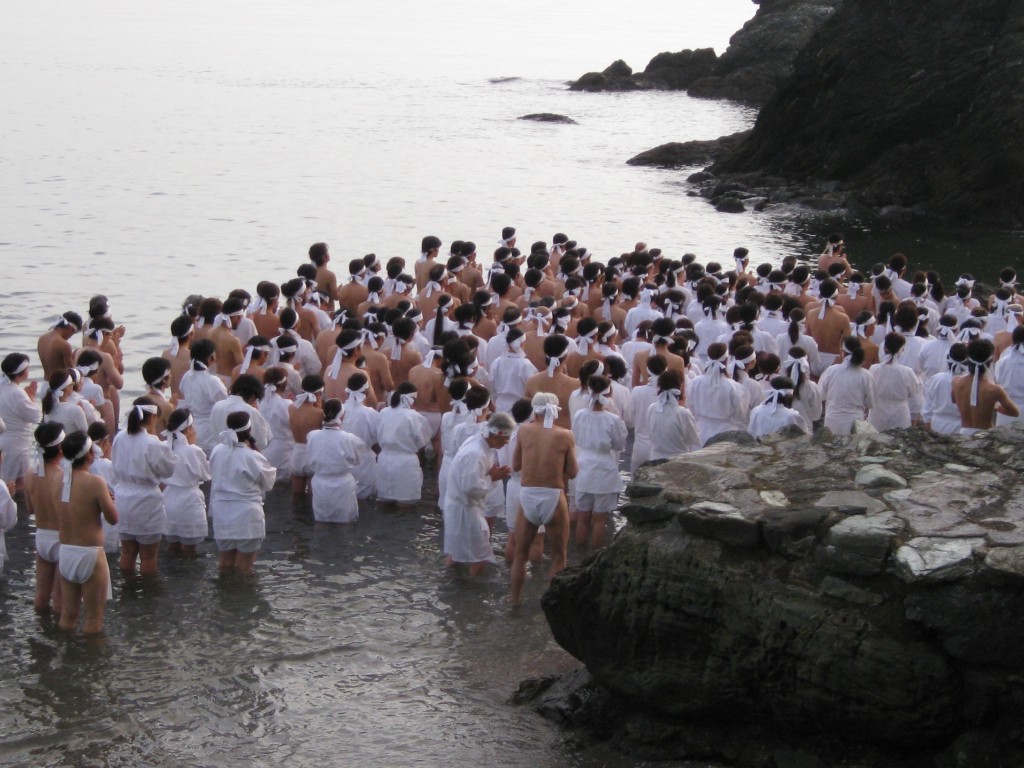
Emerging from the sea, purified by the cold salt water
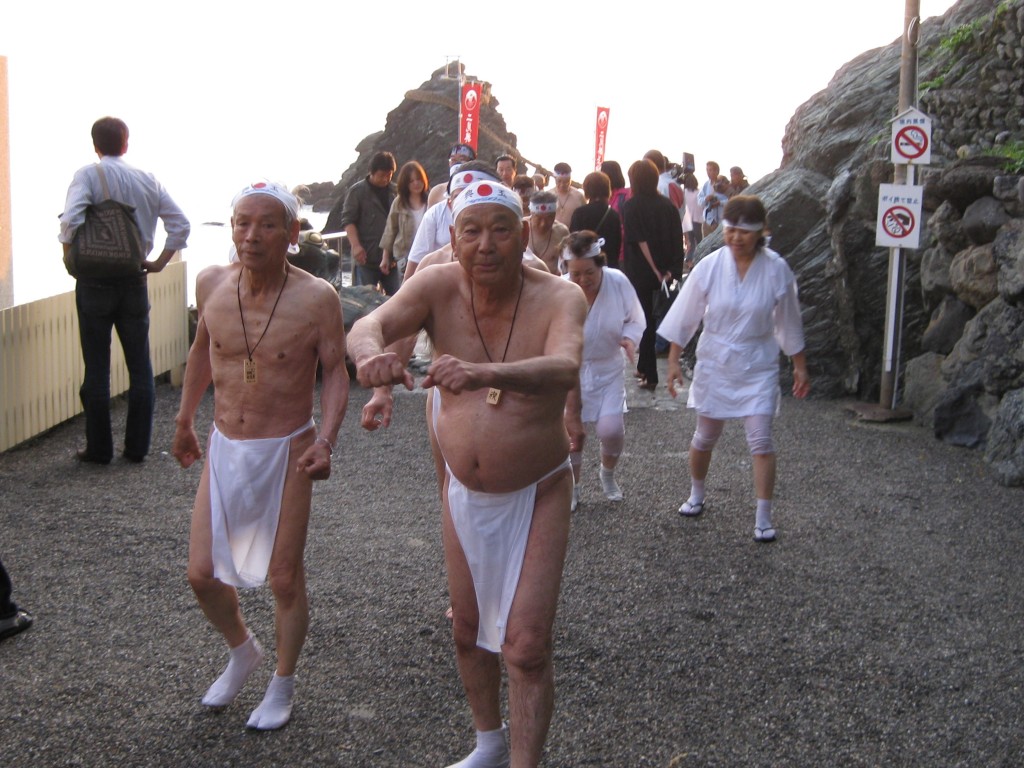
Renewed and invigorated, with significant health benefits such as boosting the immune system

Leave a Reply